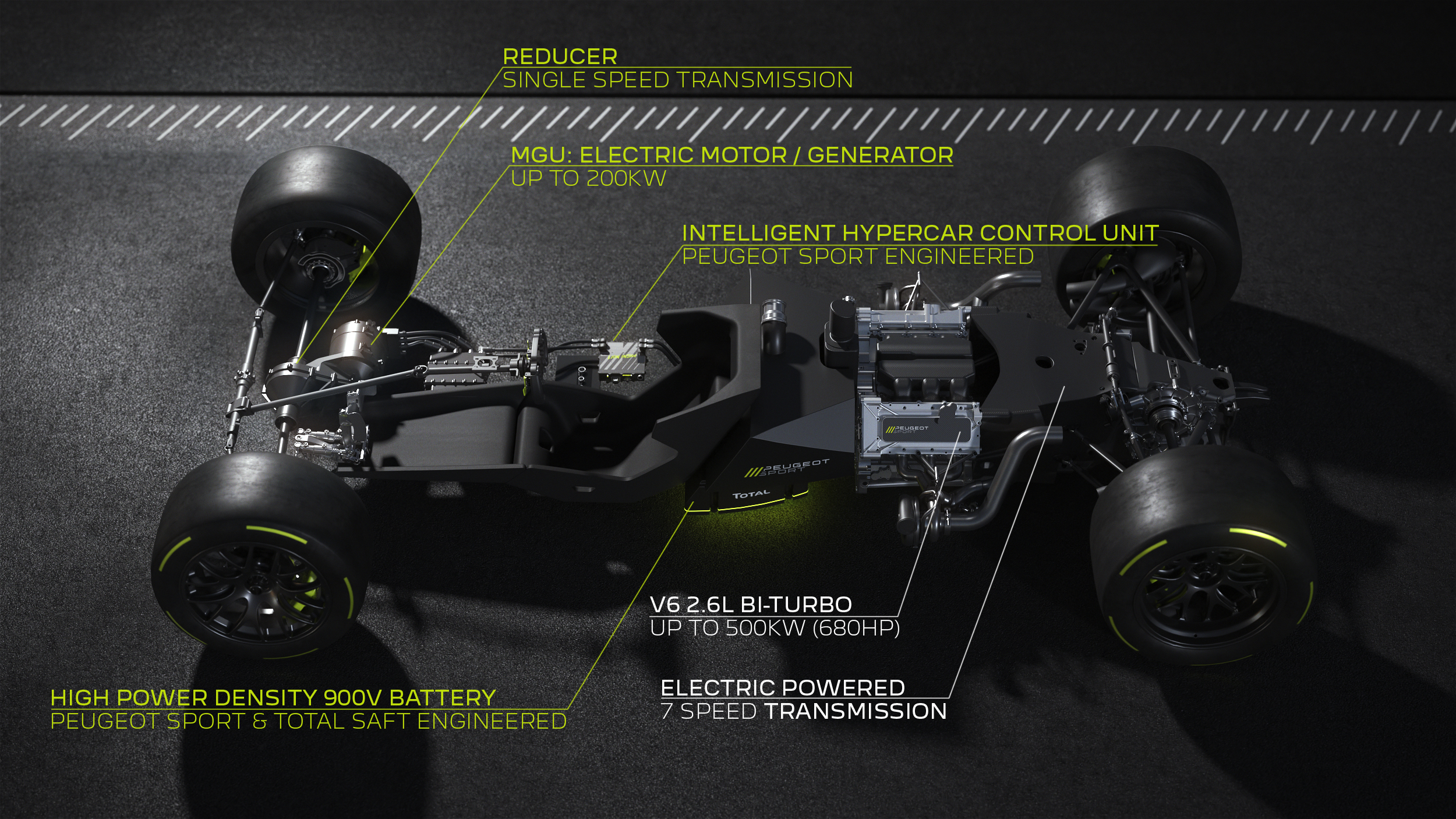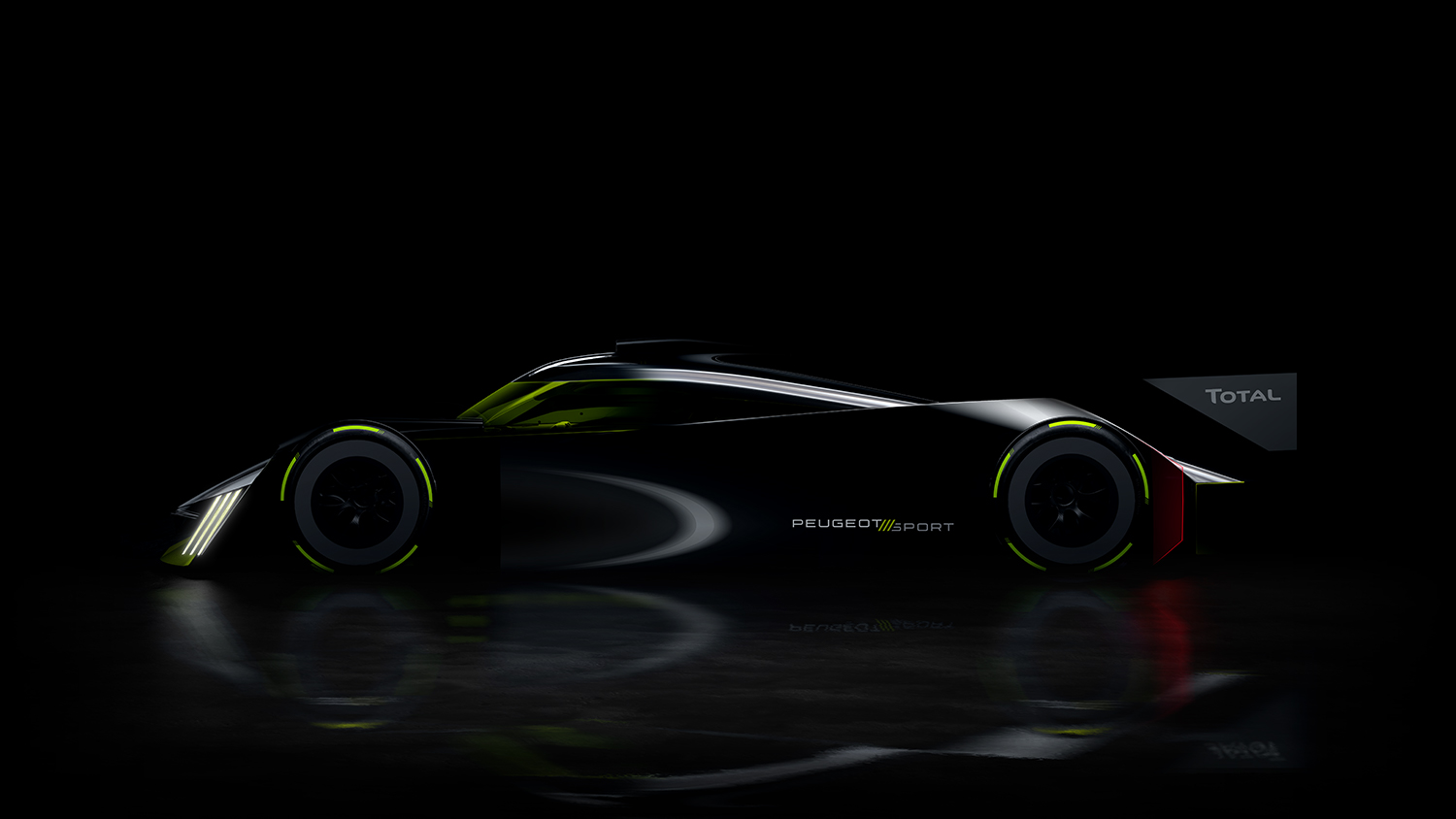This Is The Engine That Will Power Peugeot's Le Mans Hypercar Hopes
Endurance racing will look much different in coming years, as modern prototypes will be replaced by two new classes: Le Mans Hypercar (LMH) and Le Mans Daytona h (LMDh). Both bring with them a slew of new names to the grid. Peugeot will be a returning competitor, and today it revealed key details about the engine that will propel its upcoming hypercar. (There will be a road version in addition to the racecar.)
Peugeot's contender will be powered by a 2.6-liter twin-turbo V6 weighing 165 kg (364 pounds). This engine will send 500 kW (670 horsepower) to the rear wheels through a seven-speed gearbox, while a 200 kW (268 HP) electric motor/generator will drive the front wheels. Saft, a subsidiary of Total, the petro refiner, has developed the 900-volt battery packthat will sit directly behind the cockpit.
Per the regulations, the car will rely solely on the internal combustion engine at speeds below 75 mph; beyond that point, the electric motor will deliver power to the front axle, while the V6 will reduce its power in kind, as the total output of the hybrid system can't surpass 670 HP at any point except briefly to recharge the battery when it's depleted.
Clearly then, the LMH rules dictate a complicated scheme. Still, Peugeot's François Coudrain, director of the powertrain component of the project, said he believes that his team has settled on the best possible compromise:
We initially considered a single turbo, but that would have prevented us from achieving our engine's centre of gravity target. A twin-turbo V6 block offers the best trade-off between technology, weight, packaging of the engine's ancillaries, reliability and performance.

Peugeot last took victory at Le Mans with its 908 HDi FAP prototype in 2009, before bowing out of the class in 2011. It won't be the only big name automaker bringing a hypercar to the party: Toyota's GR Super Sport will represent the other half of this rivalry, and it is planned to launch on January 11 before its competition debut in the 1000 Miles of Sebring in March.
Former Toyota works driver Alexander Wurz drove a not-yet-final version of the GR Super Sport in a demonstration lap ahead of this year's 24 Hours of Le Mans in September. ByKolles and Glickenhaus have also confirmed plans to field hypercar entries, too.
Aston Martin was one of the earliest automakers to sign on to the LMH class with its Valkyrie project, but backed out in February. Formula 1 figures to be the focus of the British marque's top-flight motorsport efforts as it takes over and rebrands the Racing Point squad next year.
Meanwhile, IMSA has delayed the full integration of LMDh specifications until 2023. That ruleset has been balanced for performance parity with the LMH class, though at a much reduced cost, so it's received a wealth of interest from current Daytona Prototype international competitors and newcomers alike. Last month, Audi announced its intent to begin racing an LMDh contender in both IMSA and the World Endurance Championship in 2022, while it simultaneously signaled the end to its Formula E program after the 2021 campaign.
